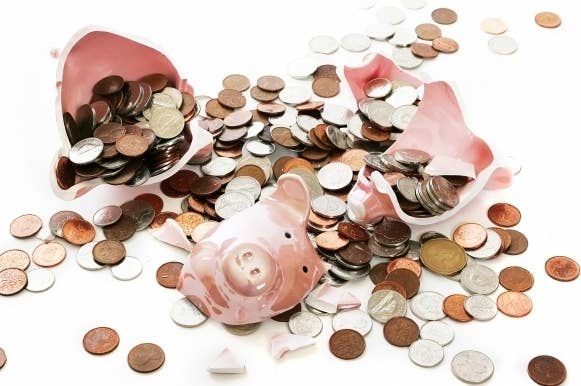Game Pricing Under Fire
The delicate issue of pricing is something that hardware and software marketers and designers will need to tackle
One of the most important marketing tools we have is also the simplest to use. It's the price tag. This has been one of the core issues facing the console business lately as we watch retail sales drop year by year, month by month. Game publishers have been privately (and sometimes publicly) asking console makers to reduce prices in order to stimulate demand for software. Of course, reducing prices is the last thing anyone wants to do. Hardware makers in particular have a lot of costs that need to be covered somehow.
Hardware makers would much rather talk about value than price. And, it's true, value is important. When you add in enough goods and services to something, its value increases - and so does its desirability. This is the basic argument going on between the Xbox One and the PlayStation 4 right now, between $499 and $399. Sure, the PS4 is cheaper, but for $100 more you get the improved Kinect and all the additional cool features it brings. Even so, it will be easier for people to put together $399 to spend on a new console than it will be to get $499. Microsoft will certainly work hard to make people understand the value of the Xbox One at $499, but an extra $100 may be a deal-breaker for some buyers.
"Hardware is not the only part of the game business where price is a big issue. Games have been suffering serious price erosion over the past decade"
An example of just how important pricing is can be seen with the Nintendo 3DS. The handheld console debuted at $249 in the US, and while it had some good initial sales demand fell off sharply. Yes, there was a lack of great software. The 3DS sales began climbing once good titles began appearing... but only after Nintendo dropped the price to $169. Suddenly the hardware looked much more reasonable, and people started buying it.
This is why many publishers are hoping Nintendo will drop the price of the Wii U, currently at $349 (for the version most people buy). The hardware isn't selling well right now, and its prospects look even dimmer when it's up against a PS4 at $399 in a few months. Nintendo's CEO Iwata has staunchly resisted any idea that a price cut is needed or imminent, and no doubt will continue to do that right up until the day when the price cut happens. The strength of the Wii U's Christmas may depend on what its price tag will be - at $299 it would sell better, and at $249 it would probably fly off the shelves.
Hardware is not the only part of the game business where price is a big issue. Games have been suffering serious price erosion over the past decade, though you wouldn't know it by looking at the standard retail price for new software. The massive growth of free-to-play games on PCs and mobile platforms has transformed consumer expectations for game pricing. The fact that you can download and play thousands of top-quality games for free means that people don't think games need to be $60.
It's not just free-to-play games that have caused this transformation. The growth of the used games trade has had a similar effect; if you're not getting a collector's edition, why not get a game for a little cheaper because someone else has already played it? If you shop around on eBay and other sites, games can get remarkably cheap. The continuing value of online multiplayer also affects consumer attitudes and behavior. Why buy a new game if you're still having plenty of fun playing Call of Duty with your friends? As for PC games, Steam has changed player behavior dramatically with its steeply discounted sales. Not sure if you want that new game for $60? If it's available on Steam, wait a while and see if it goes on sale.
Publishers have tacitly acknowledged this price erosion with bundles (Game of the Year Editions) and programs like Platinum Hits for the Xbox 360, where games that once sold for $59.99 go for $19.99. If you don't need to have the latest game right when it comes out, you can get a great deal on it. There are so many games available now that you could make a huge stack of really great games to play and never spend more than a fraction of the original retail price.
Is it any wonder, then, that new game sales at retail have been declining for the last five years? Publishers have wisely decided, so far at least, to avoid hiking prices on new games for next-gen consoles. We'll continue to see high-priced Deluxe Collector's Editions in an effort to wring more profit from the most enthusiastic fans. And new games will almost always be appearing with downloadable content (DLC) available on day one in order to goose the profit margins. Yet budgets continue to climb for game development, and pressures to reduce pricing continue to increase. What's the answer?
Please read the full article on our sister the [a]list daily

